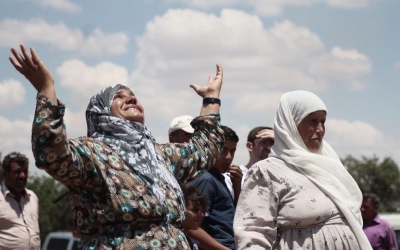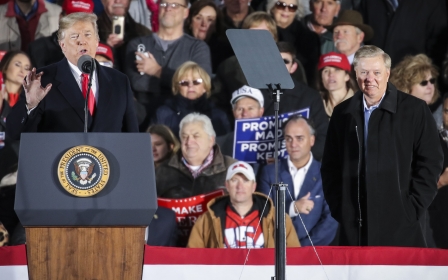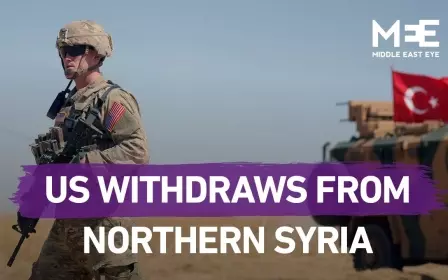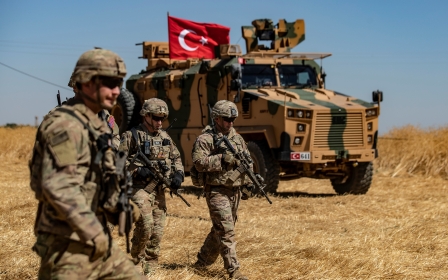International opposition mounts against Turkey's offensive in Syria
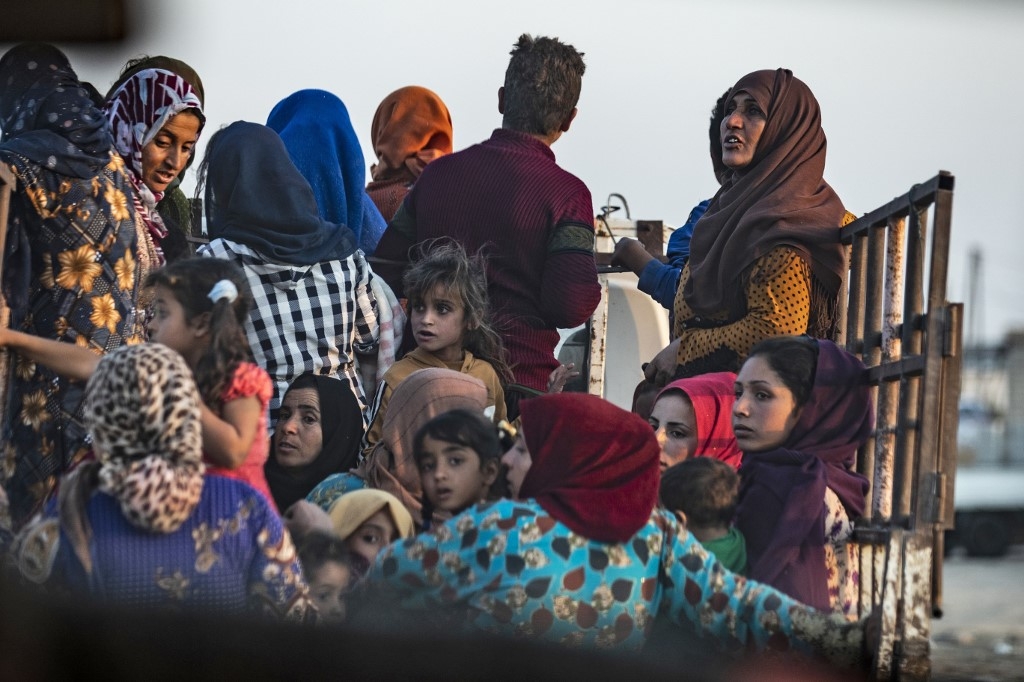
International opposition is mounting against Turkey's military offensive into Kurdish-held northeastern Syria, leading to a call for an emergency meeting of the United Nations Security Council.
The Turkish offensive, launched on Wednesday, had been anticipated since Washington announced on Sunday it was withdrawing its forces from the area, clearing the way for Turkey's military operation.
The predominantly Kurdish northeast is mostly held by the Syrian Democratic Forces (SDF), which has been Washington’s coalition partner in the fight against the Islamic State (IS) group.
Why is Turkey invading northeast Syria?
+ Show - HideWho is fighting who?
Democratic Union Party (PYD)/Peoples Protection Units (YPG)
Founded in 2003, the PYD and its military wing the YPG are the ideological sister group of the Kurdistan Workers Party (PKK), which has fought a decades-long conflict with Turkey.
Following the beginning of the Syrian civil war in 2011, the PYD managed to take control of much of the Syria's north in the security vacuum that followed.
The group claims to espouse an ideology called "democratic confederalism", based on the ideology of PKK founder and leader Abdullah Ocalan, who has been in prison in Turkey since 1999.
Turkey
Turkey has long viewed the growth of the PYD with deep concern, and a peace process between Turkey and the PKK collapsed in 2015 in part over the spread of the Syrian Kurds' influence.
Since then, Erdogan has repeated his determination that he would "never allow the establishment of a Kurdish state in northern Syria".
What does Turkey want in northern Syria?
Turkey fears that a pro-PKK entity on its southern border would inevitably become a launchpad for attacks on Turkey.
In addition, Turkey wants to expell Syrian refugees from Turkey and resettle them in a "safe zone" it plans to create in northern Syria.
Turkey has the largest refugee population in the world, and the presence of Syrians in the country has increasingly led to animosity from Turks who blame them for crime, unemployment and the dilution of Turkish culture.
What does the PYD want in northern Syria?
The PYD's long-stated aim has been the creation of a statelet on the basis of Ocalan's ideology, as well as protecting Kurdish rights.
The area controlled by the PYD, known as Rojava, has established autonomy with networks of local councils and forums that aim to promote decentralised democracy - though the group has been accused of enforcing a one-party rule in the region.
What does the US-led coalition want?
Donald Trump was elected on a platform of isolationism and has touted the defeat of IS as the sole reason for US involvement in Syria - now that has largely taken place, Trump has argued the United States has no need to remain.
The biggest fear for the US and its allies is that Turkey's takeover of PYD-controlled areas could see the release of some of the 15,000 IS fighters previously captured by the Kurds and their allies.
What does the Syrian government (and its allies) want?
The Syrian government, as well as its close allies Iran and Russia, are happy about the US' decision to withdraw from the north, but have expressed concern about the violation of Syria's sovereignty by Turkey.
Syrian President Bashar al-Assad hopes that, when faced with the threat from Turkey, the PYD will throw their lot in with him in order to avoid total defeat.
Assad has repeatedly said he aims to regain control of all of Syria, and if the PYD was to ally with him formally, it would bring the largest area hitherto out of his control back under Damascus' influence.
Still, the SDF, an umbrella group of several militias, is primarily controlled by the Kurdish YPG, which Ankara sees as an extension of the Turkey-based PKK militant group, deemed a terrorist organisation by the Turkish government.
Turkey's aim is to push the SDF away from its border to create a "safe-zone" on the Syrian side, where it could send back some of the 3.6 million refugees from Syria's eight-year civil war that it currenly hosts.
New MEE newsletter: Jerusalem Dispatch
Sign up to get the latest insights and analysis on Israel-Palestine, alongside Turkey Unpacked and other MEE newsletters
International reactions
On Wednesday, the president of the European Union's executive branch, Jean-Claude Juncker, urged Turkey to show restraint and stop its military operation.
If Turkey's plan involves the creation of a safe zone, "don’t expect the EU to pay for any of it", Juncker warned, according to Reuters news agency.
After Turkey launched its operation, Britain, France and Germany called for an emergency UN Security Council meeting to be held on Thursday.
The Netherlands, Denmark, Italy and Canada spoke out against the offensive as well.
Dutch Foreign Minister Stef Blok, after summoning the country's Turkish ambassador, said the Netherlands "condemns" Turkey's offensive and called on Turkish officials to "not to continue on the path they are going down", Reuters reported.
Danish Foreign Minister Jeppe Kofod called the Turkish operation "a regrettable and wrong decision" and called on Turkey to "show restraint".
Meanwhile, Italian Prime Minister Giuseppe Conte and German Foreign Minister Heiko Maas separately warned that Turkey's operation would lead to further destabilisation of the region.
Canadian Foreign Minister Chrystia Freeland condemned the move as well, calling on Twitter for the "protection of civilians and on all parties to respect their obligations under international law".
Egypt and Saudi Arabia both came out in opposition to the Turkish advance.
Saudi Arabia called the offensive a "blatant violation of the unity and independence and sovereignty of Syrian territories".
Official Saudi news agency SPA cited a foreign affairs official as saying that the incursion was a "threat to regional peace and security".
Riyadh has had tense relations with Ankara, partly over the assassination of journalist Jamal Khashoggi by Saudi government agents at the kingdom's consulate in Istanbul last year.
Egypt has also endured uneasy relations with Turkey for years, as Turkish President Recep Tayyip Erdogan has been an outspoken critic of the 2013 coup that brought Egyptian President Abdel Fattah Al-Sisi to power.
Kuwait, Bahrain and the United Arab Emirates also denounced the Turkish incursion.
In the United States, lawmakers continued to denounce the Turkish operation, calling on President Donald Trump to intervene against it.
Trump, who is widely seen as the enabler of the Turkish offensive, said the assault was "a bad idea" not backed by the United States.
"The United States does not endorse this attack and has made it clear to Turkey that this operation is a bad idea," Trump said in a statement released by the White House on Wednesday.
Trump added that Turkey is now responsible for IS fighters in SDF custody.
Currently, about 60,000 people linked to IS, the majority of whom are women and children, are being held in al-Hol camp in northeast Syria.
SDF fighters guard the al-Hol camp, but critics say the Turkish offensive risks drawing those guards away from their posts to join the battle.
Turkey says the incursion aims to protect its national security and prevent a "terror corridor" between Syrian and Turkish Kurdish militants.
"Our mission is to prevent the creation of a terror corridor across our southern border, and to bring peace to the area," Erdogan said on Twitter on Wednesday. "We will preserve Syria's territorial integrity and liberate local communities from terrorists."
Middle East Eye delivers independent and unrivalled coverage and analysis of the Middle East, North Africa and beyond. To learn more about republishing this content and the associated fees, please fill out this form. More about MEE can be found here.



